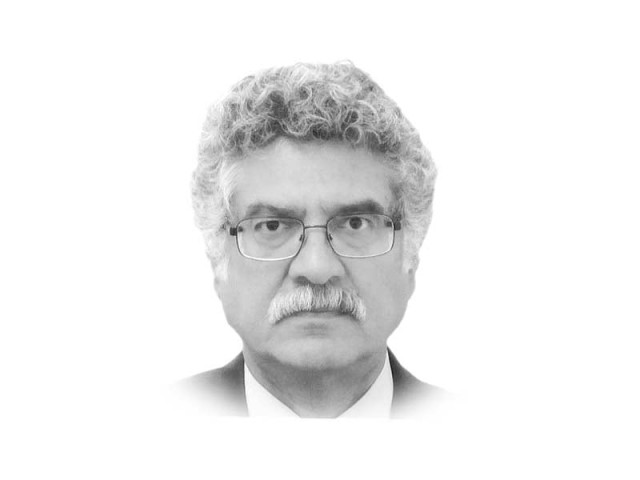Free American media: myth or reality?
Reporting on international issues, American media is usually cooperative, reflecting the policies of their government

The writer is a former Ambassador of Pakistan to the UN. The views expressed here are his own
It is well known that the American media observes certain self-imposed ground rules. All reports on national security and foreign policy issues are cleared with the relevant quarters. Legal experts are consulted to remain within the law. Journalists are ‘embedded’ with US troops on foreign missions to ensure ‘correct’ projection of the operation. Also, US embassies abroad are the first to be consulted by visiting journalists to get the official ‘read-out’ on a situation.
The litmus test of the US media is its coverage of countries opposed by the US. The blatantly false accusation about Saddam Hussein possessing nuclear weapons, justifying the invasion and destruction of Iraq, was cravenly supported by the mainstream American media. Similarly, efforts for regime change in post-revolution Iran through sanctions, freezing of assets and allegations of developing nuclear weapons have never been seriously questioned, nor has enforcing regime change in Libya or Syria by using terrorist groups. China, while an ally against the Soviets, was extolled for its liberalisation and rapid growth has been widely castigated after its emergence as a rival power. Putin’s Russia has been accused of aggression against Ukraine even though it was the US which tried to undermine Moscow’s strategic interests in the Crimea and the Black Sea by planting a pliant government in Kiev. Today it is Turkish President Erdogan, a Nato ally, who is under attack for opposing American support to Kurdish terrorists.
In stark contrast is the positive coverage given to Israel and India, countries vital for American strategic interests in the Middle East and South Asia. Their gross and consistent violations of human rights, proliferation of nuclear weapons and illegal occupation of territory has all been covered up while they are praised as “shining examples of democracy”.
Pakistan, too, has come in the cross hairs of the ‘free’ American media, coinciding with the deterioration in Islamabad-Washington relations over Afghanistan. The main target is the Pakistan Army which is seen as the main obstacle to American interests in the region — to crush the Afghan Taliban into submission and promote India’s unchallenged regional supremacy so as to contain China.
Consequently, a negative narrative has been promoted, accusing the Pakistan Military of allegedly supporting terrorism against Afghanistan and India, repressing ‘legitimate’ rights of the Baloch and Pashtuns, cracking down on political leaders, media and civil society critical of the army, and most recently, of manipulating the 2018 elections to ensure a government by its ‘puppets’. To build up this narrative, extensive media space has been given to known American touts and hostile ‘experts’ with personal agendas and vendettas, especially against the army.
In this campaign, the biggest casualty has been the truth. If democracy without military interference is so important in Pakistan for the Western media, why is not so in Egypt or Thailand or elsewhere. Even in Pakistan, military dictatorships have been praised to the heavens so long as they served American interests. If providing good governance and ending official corruption is an international gold standard, then why can this not be applicable to Pakistan? Evidence of official corruption, such as the Panama Papers, taken up by the Pakistani judiciary, has not been invented by the military — a fact ignored by the American media.
Besides, election observers, including an Indian, have testified that the elections were free and fair. Election results also belie allegations of rigging — if the army has any favourites they would have ensured a clear majority for them in the national and provincial assemblies, which has not happened. Moreover, the allegedly favoured ‘Islamic’ forces have done miserably in the polls. Also, there was never such a barrage of accusations about past elections which were also claimed to have been rigged. Furthermore, these reports are highly speculative and presumptive, raising doubts about the incoming government’s ability to overcome the country’s challenges even before the new leadership has taken charge. Most importantly, objective reporting requires credible evidence and presenting both sides of the argument, which has patently not happened. This was highlighted in a rare example of objective reporting in a BBC Hard Talk interview.
The reason for the churlish, sanctimonious and biased American media reporting is clear. It is an obvious example of toeing the official line — to demonise the Pakistan Army for opposing American interests regarding Afghanistan, India or Pakistan’s nuclear weapons capability. The purpose is to weaken Pakistan by sowing dissension between the army and the people, especially the political leadership. The US would prefer to deal with weak and venal leaders, tainted by corruption, leading kleptocracies and enriching themselves through crony capitalism, while hocking the country through massive IMF bailouts to external manipulation and pressure.
To conclude, it is worth recalling a speech to journalists by The New York Times correspondent John Swinton on the ‘Independent Press’ in 1883, in which he said “there is no such thing in America as an independent press… We are the tools and vassals of rich men behind the scenes… We are all intellectual prostitutes.” Apparently not much has changed since in the American media.
Published in The Express Tribune, August 15th, 2018.
Like Opinion & Editorial on Facebook, follow @ETOpEd on Twitter to receive all updates on all our daily pieces.














COMMENTS
Comments are moderated and generally will be posted if they are on-topic and not abusive.
For more information, please see our Comments FAQ